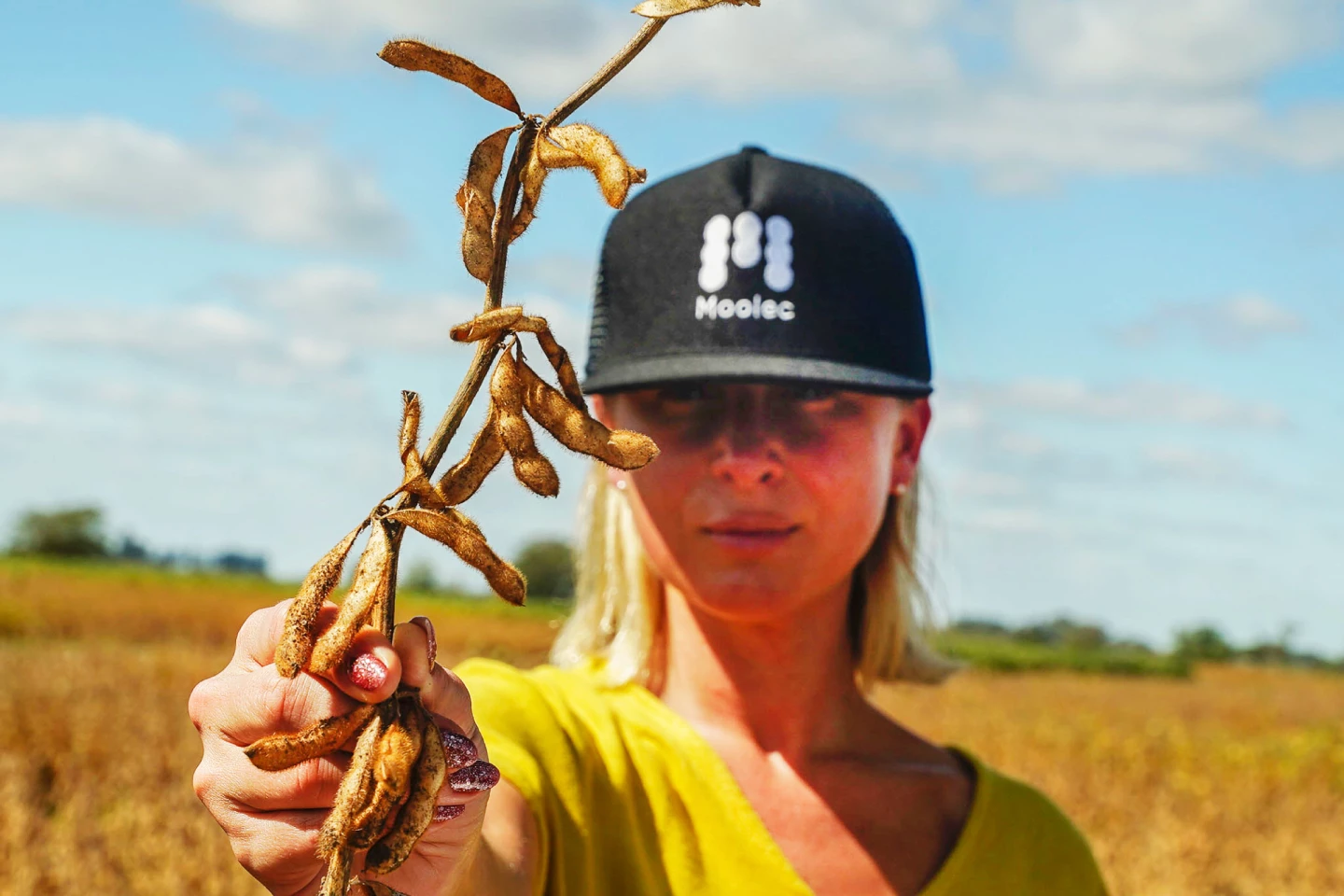Great strides are being made in the field of lab-grown meat, but its price remains a barrier to wide commercial use. British startup Moolec has created what it claims is a less costly alternative, in the form of soya plants that produce pig-protein-rich beans.
Although the details of Moolec's molecular farming technology are a trade secret, the company states that it has added pig genes to the genome of regular soya plants. As a result, a quarter of the proteins in those plants' "Piggy Sooy" beans are pig proteins – 26.6%, to be precise. The flesh of the soybeans even has a pink, pork-like color.
"Each protein is selected to add value in terms of targeted functionality like taste, texture, and nutritional values," the company states on its website.
Farmers will raise the plants via conventional agricultural practices. Once the beans have been harvested and processed – again, via conventional techniques – their proteins will go into meat substitutes and other products. Pea plants which produce beef proteins are reportedly also in the works.

As is the case with lab-grown pork, it is hoped that commercial adoption of Piggy Sooy could ultimately eliminate the raising and slaughtering of pigs, along with the associated ethical and environmental concerns.
"Moolec has developed a unique, successful, and patentable platform for the expression of highly valuable proteins in the seeds of economically important crops such as soybeans," says the company's chief science officer, Amit Dhingra. "This achievement opens up a precedent for the entire scientific community that is looking to achieve high levels of protein expression in seeds via molecular farming."
There's currently no word on when foods containing the proteins may be available to consumers.
Source: Moolec via New Scientist





